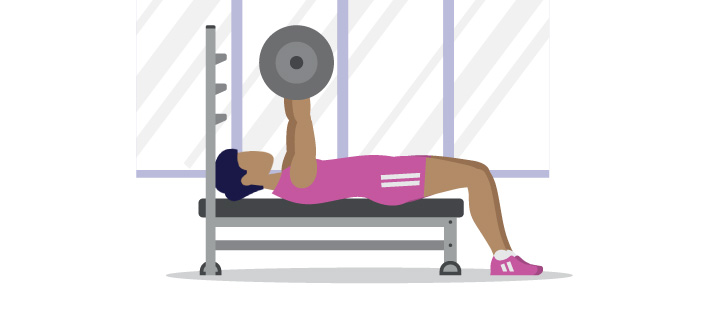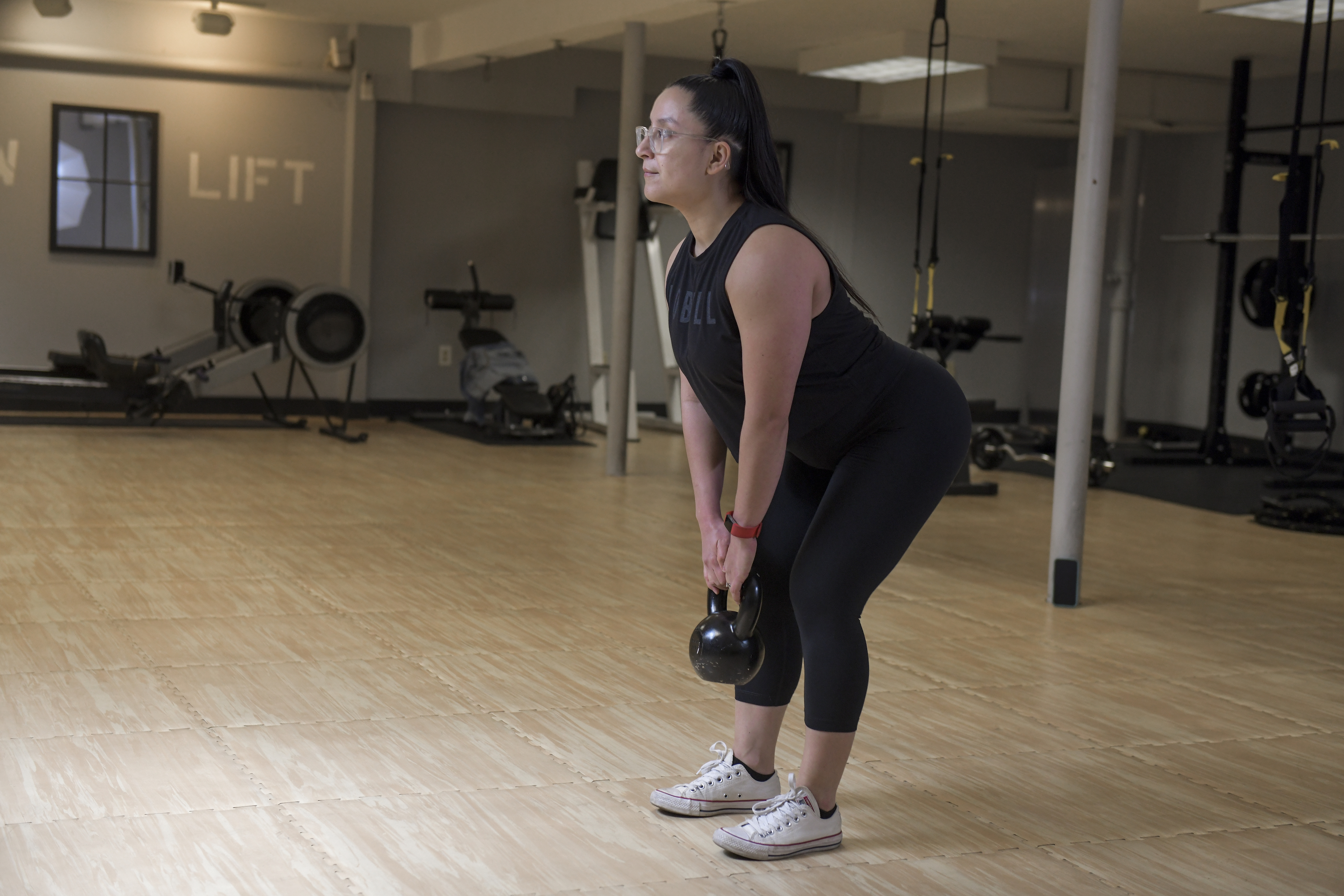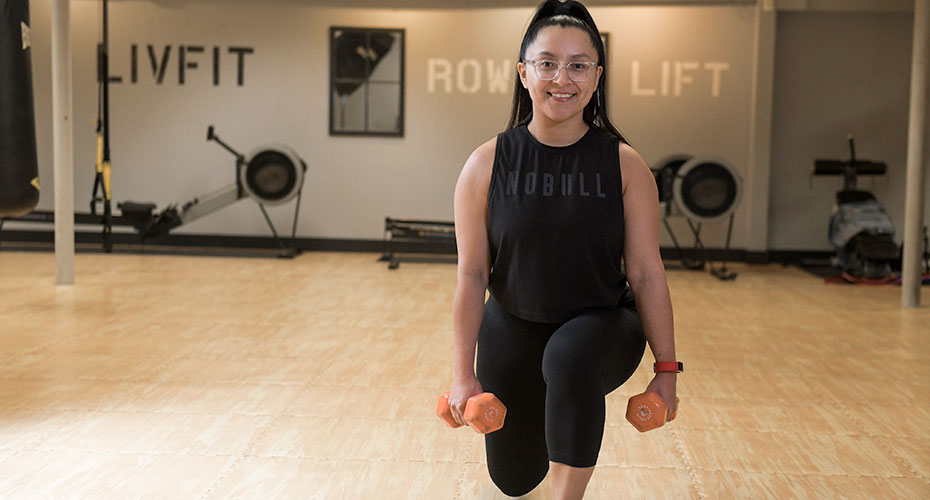Jan 4, 2025
To lose weight, lift weights
Most of us do squats, deadlifts and rows every day of our lives without realizing it – when we get out of bed, lift groceries out of the car, and open doors.
However, most of us don’t properly condition the muscles that perform these important movements.
As a personal trainer, many people have told me they are intimidated by lifting weights or just don’t think it’s for them. The reality is everyone can benefit from weight training. That’s why I want to debunk a few of the most common weightlifting myths.
The most common weightlifting myths
Myth #1

Lifting weights will hurt me or make my injuries
or pain worse
When done properly, lifting weights not only will not hurt you, it actually will decrease your injuries and pain. That’s because it strengthens the parts of our body that often are the source of our pain.
Myth #2
Lifting weights will make me look like a body builder
While some people might be able to achieve that body building look by lifting weights, it takes a great deal of time and commitment. Most people who lift weights simply will get a toned and tightened look.
Myth #3
Lifting weights is dangerous for older adults
Lifting weights is a great activity for older adults. As we age, we lose muscle mass. Lifting light weights can help counteract this by increasing our muscle mass. It also can help us strengthen our bones and improve our balance, so we can avoid falls and more easily engage in the activities of daily living such as getting up from the couch and walking up the stairs.
Myth #4
Lifting weights won’t help me lose weight
Studies have found resistance training reduces body fat percentage, body fat mass and the fat around the abdominal organs in healthy adults. Lifting weights stimulates our metabolism, activates large muscle groups, burns calories and builds muscle, all helpful when you seek to burn fat.


How to get started
The Centers for Disease Control and Prevention recommends that everyone lift weights one to two days per week. Here are a few tips to get started:
- Start small: Start doing simple weightlifting exercises once a week for 30 minutes. Starting small can help make weightlifting a habit.
- Weights before cardio: Weightlifting engages more of your body, so it’s best to do it before any cardio exercise.
- Take advantage of complementary personal training sessions at your gym: Before your session, make a list of your specific health and exercise goals (i.e., lose 10 pounds in three months, tone and tighten, improve balance), your current fitness routine, and any injuries and questions you have. The trainer can show you the correct technique for a mix of strength training exercises you can do with free weights and machines.
- Your phone is your friend: If you don’t have a gym membership, consider investing in some equipment at home, such as good-quality resistance bands, a stability ball and a set of dumbbells, and then head online. Bodybuilding.com and Wenning Strength’s YouTube channel are two of my favorite resources.
- Get social: Many people prefer working out as a group, so look for a strength training class with a small number of students and an experienced instructor.
Not-for-profit health plan Blue Cross Blue Shield of Massachusetts reimburses members for a portion of the fees they pay each year to join a full-service health club or a studio that offers in-person or online instructor-led group classes such as weightlifting.
Like many things in life, when we begin something that once seemed intimidating and get into a groove, the activity becomes fun, and we find ourselves looking forward to it. Weightlifting is no different.
With any form of exercise, I always encourage my clients to “Remember the why.” Think about why you are exercising in the first place. Chances are it’s to take care of yourself and your health so you can enjoy your life to the fullest. With weightlifting, as with all types of physical activity, you can feel good knowing that your efforts today will benefit you in the long run.
Jessica Maldonado Garcia was interviewed by Rachel Coppola for this column.
Jessica Maldonado Garcia is a Blue Cross Blue Shield of Massachusetts health engagement coordinator as well as a certified personal trainer. Have a question about wellness that you would like us to address in a column? Contact us here!

